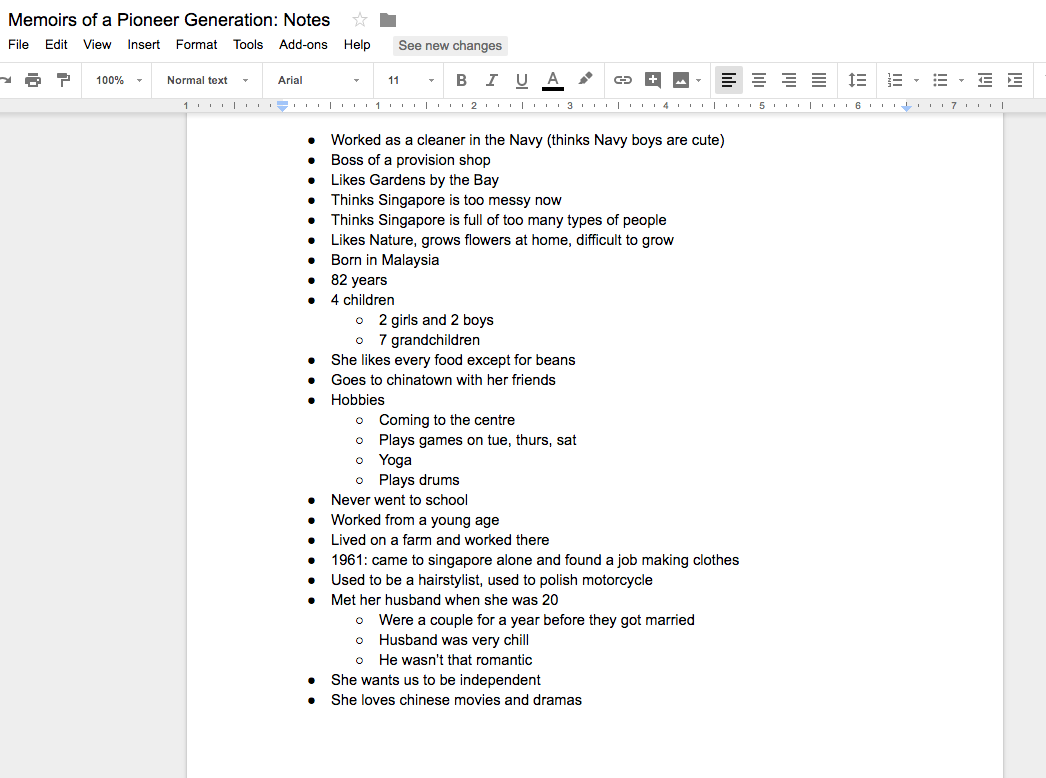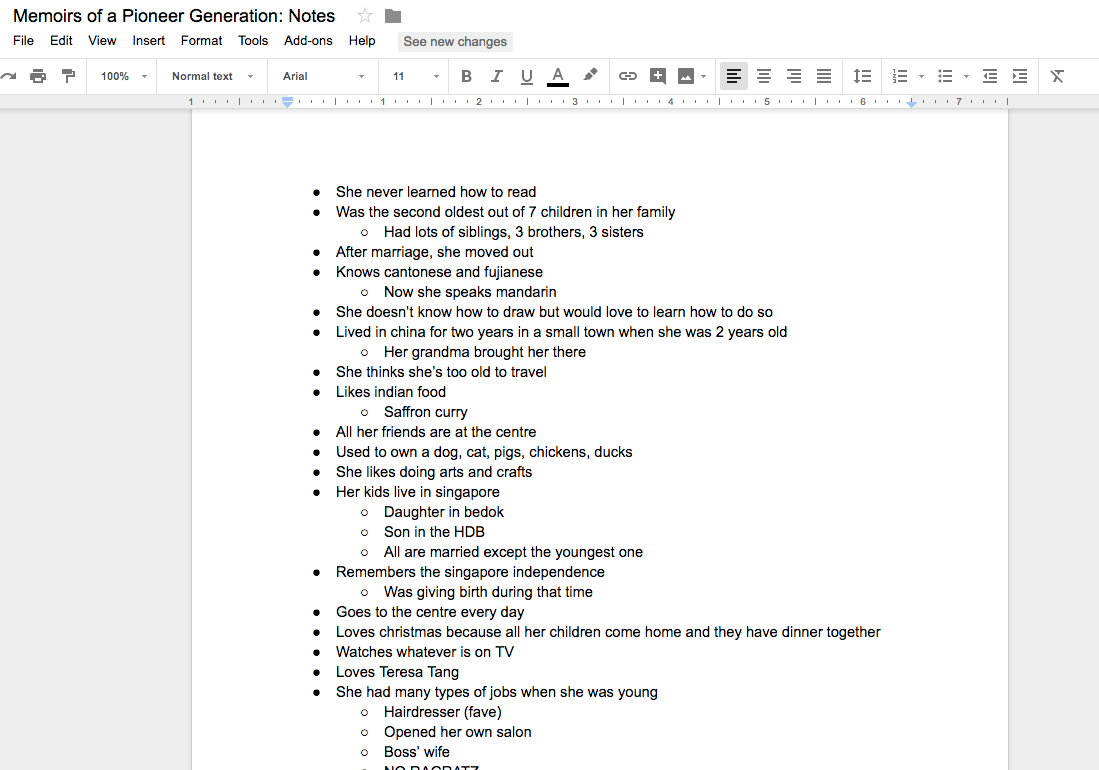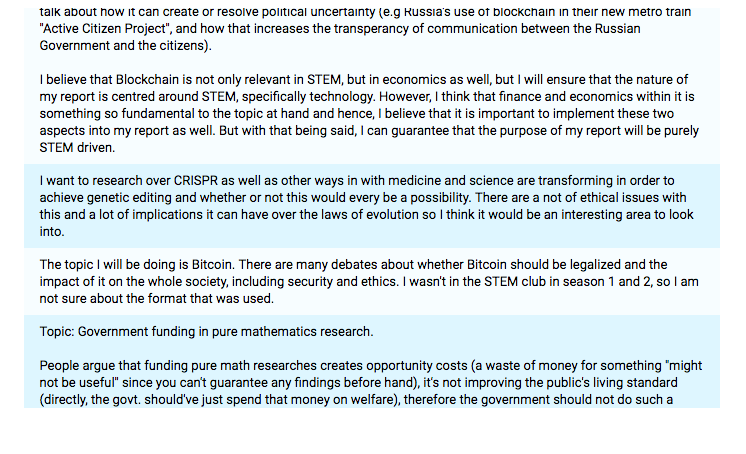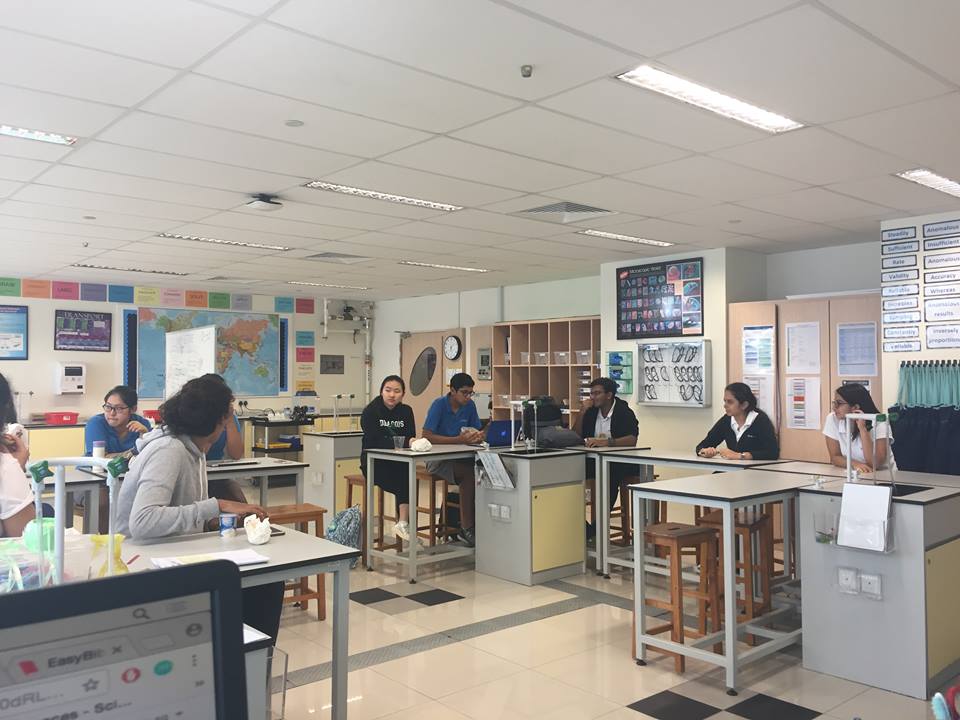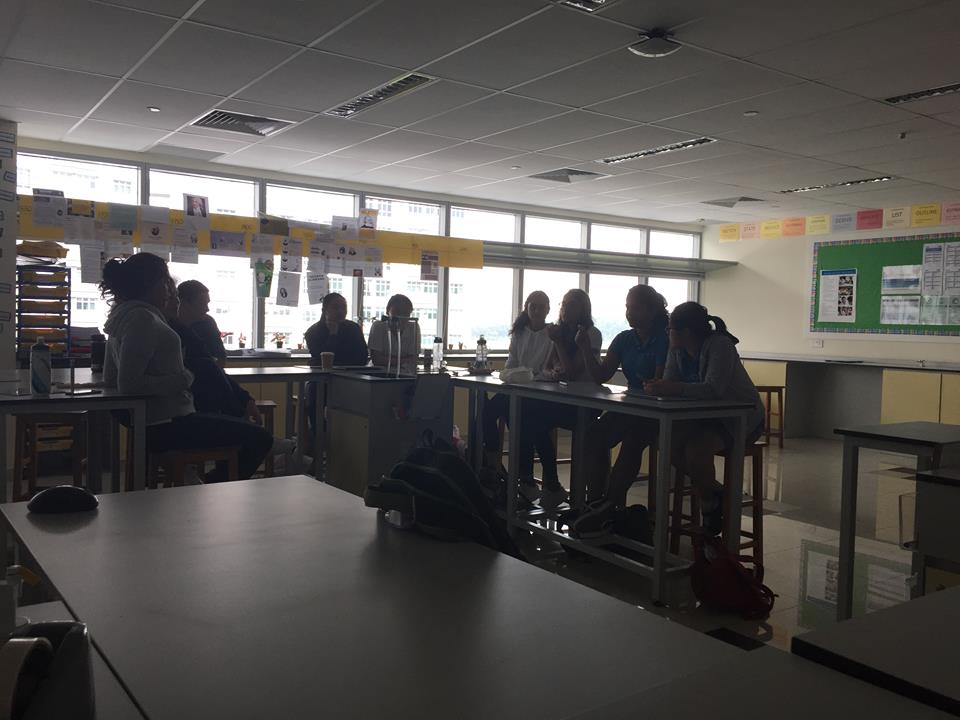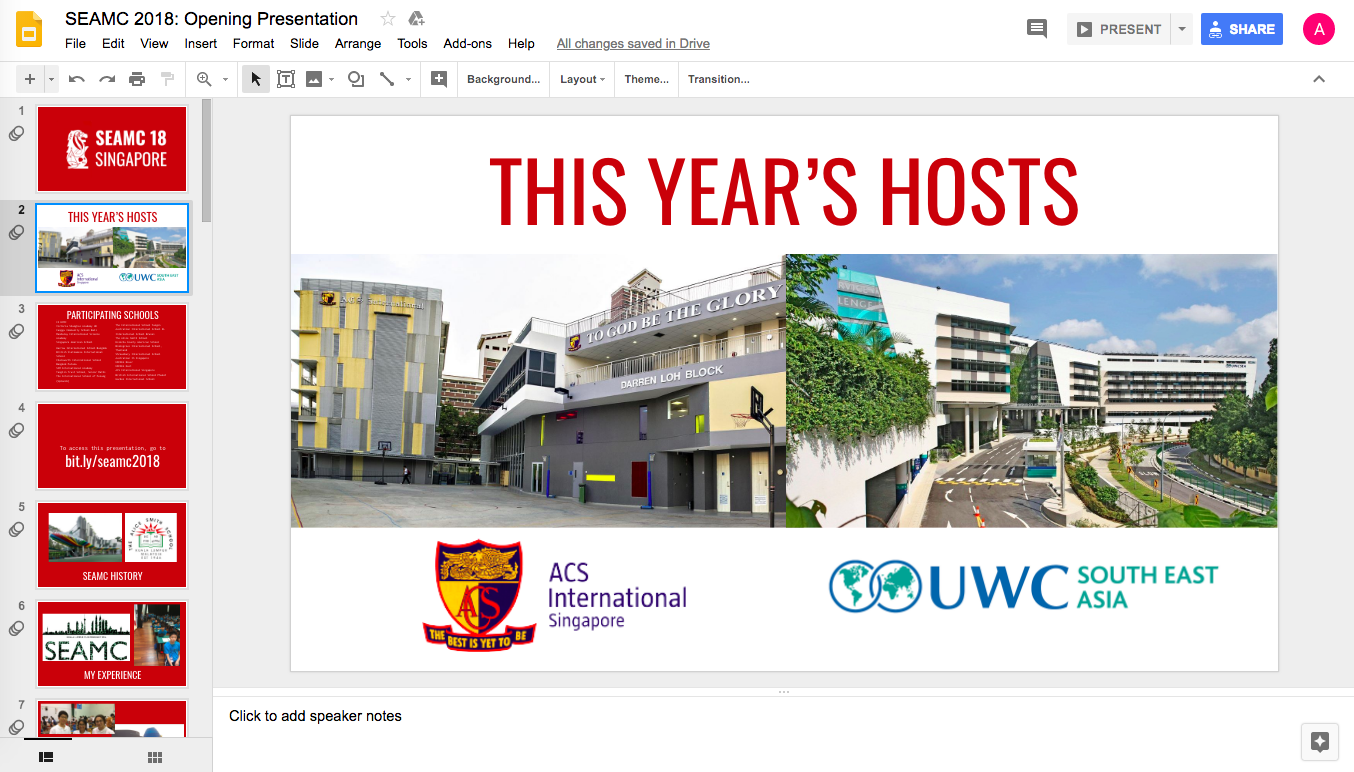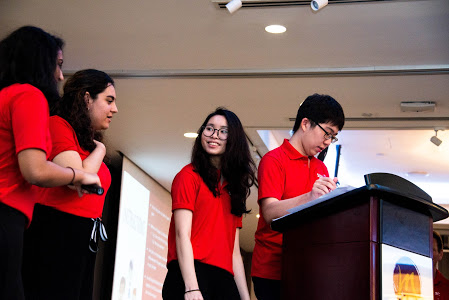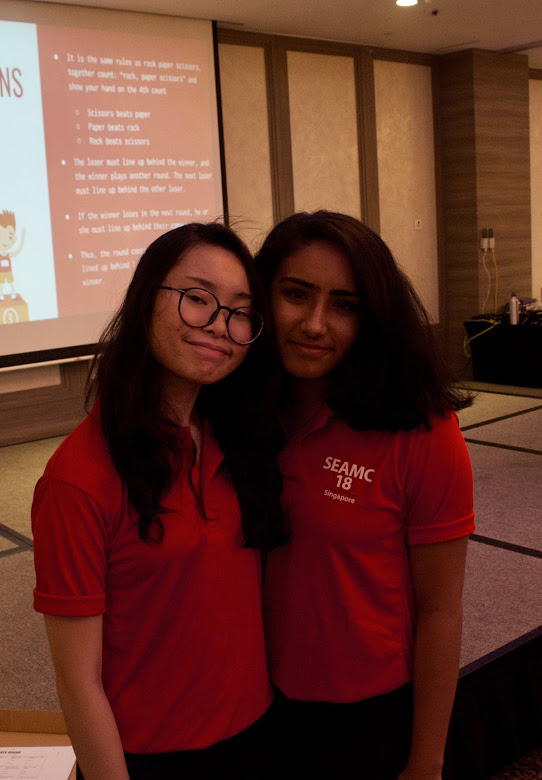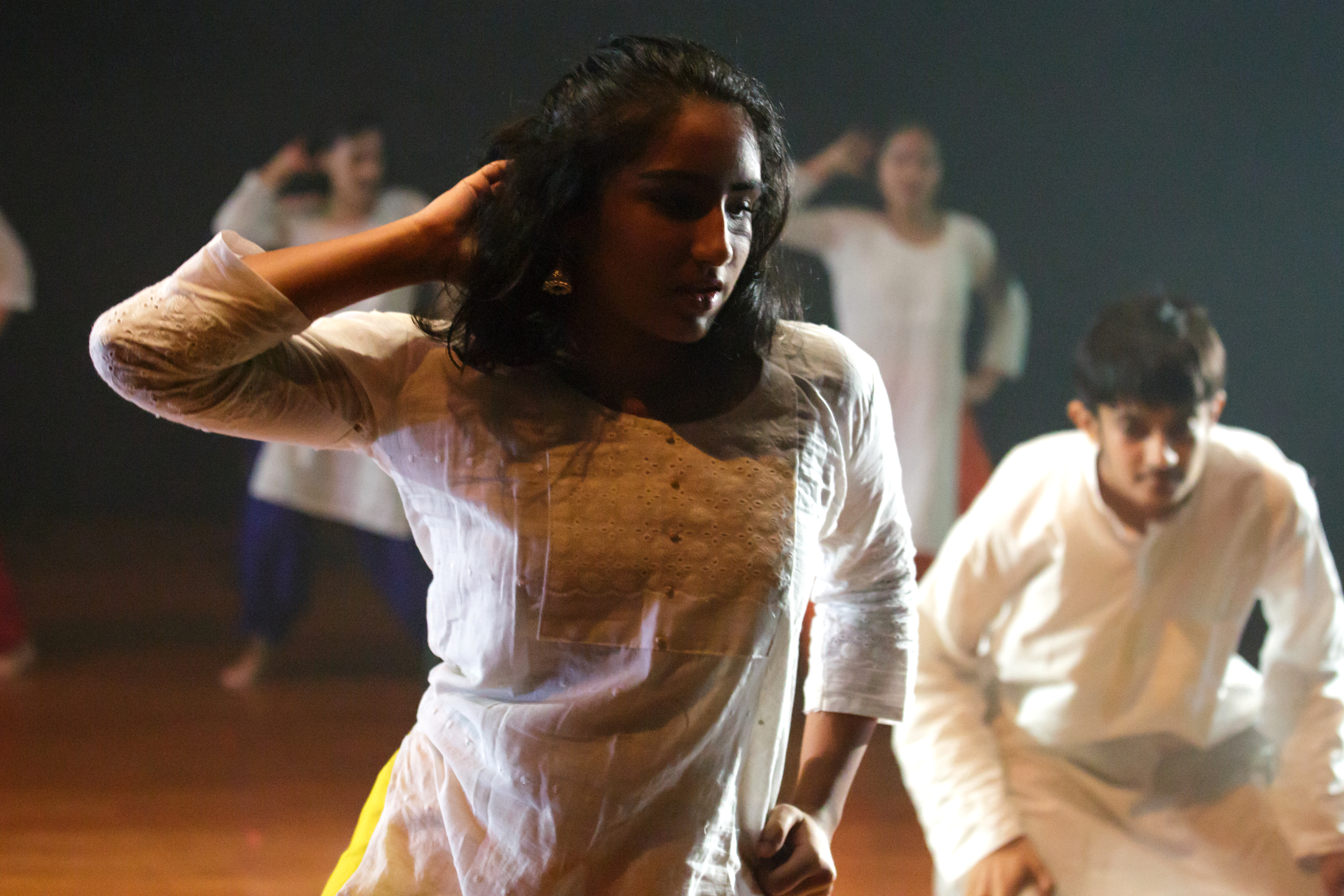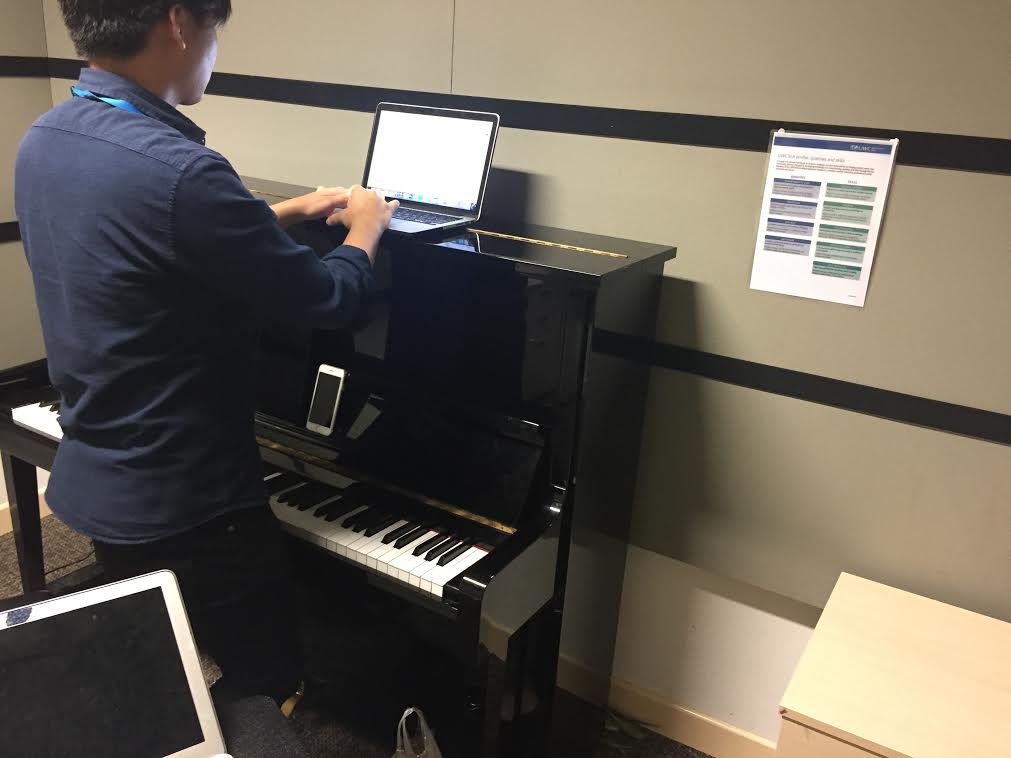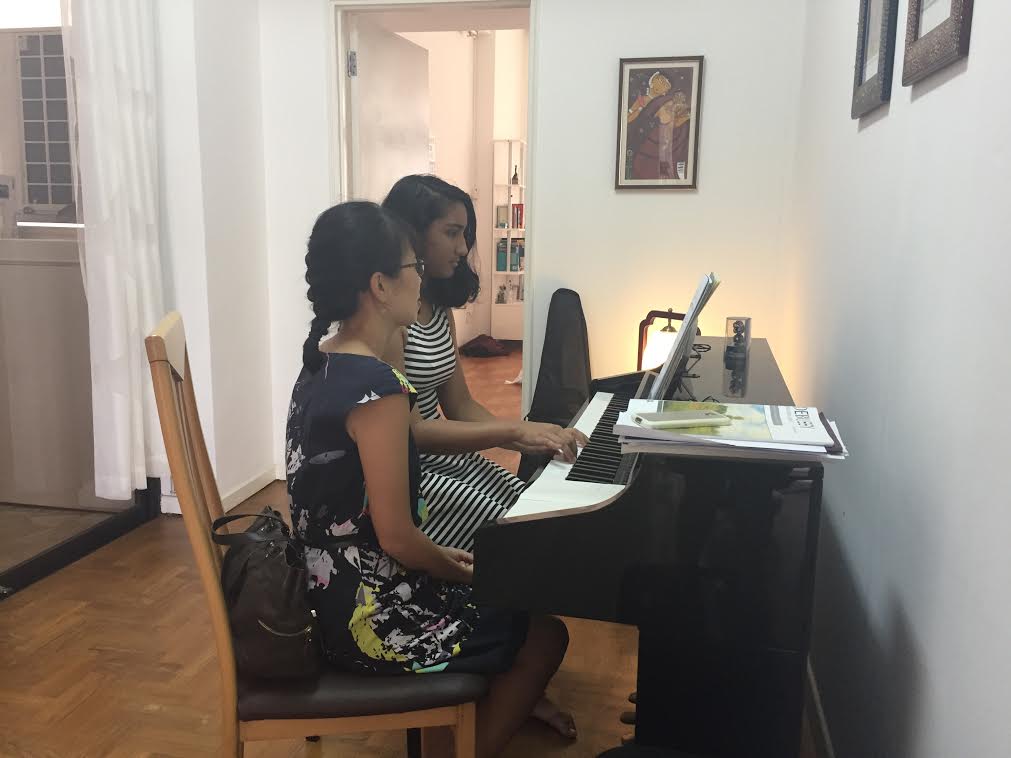LO5-Demonstrate the skills and recognise the benefits of working collaboratively.
In sessions, we were all working hard to publish our individual projects onto our website (https://stemclubuwcsea.wordpress.com/). Although the objective was for us to create projects independently, I realised the importance of relying on the people around you to edit, refine, and improve your own work. I found this out primarily through the process of peer editing we implemented.
It’s easy to get defensive over your work. But I found that there was real value in listening to suggestions from my peers about my work: what other ideas I could implement, advice to remove long-winding sentences from my writing, and simple grammatical changes. I also found that listening to alternative perspectives helped me broaden my own views on the issue I chose to write about.
For instance, in my article I chose to discuss the implications of asteroid mining. I was originally writing solely about the economic and social repercussions of this phenomenon. But after discussing with some of the members in the club, I found that there were so many more issues I could incorporate into my article such as the political tensions and legal consequences over ownership of land in space. I found it fascinating that my perspective broadened so much after hearing out others’ opinions.
Ultimately, this process really helped me achieve the level of breadth I was aiming to cover in my article. Here is the link: https://stemclubuwcsea.wordpress.com/2018/08/19/what-lies-beyond-us-the-implications-of-asteroid-mining/

